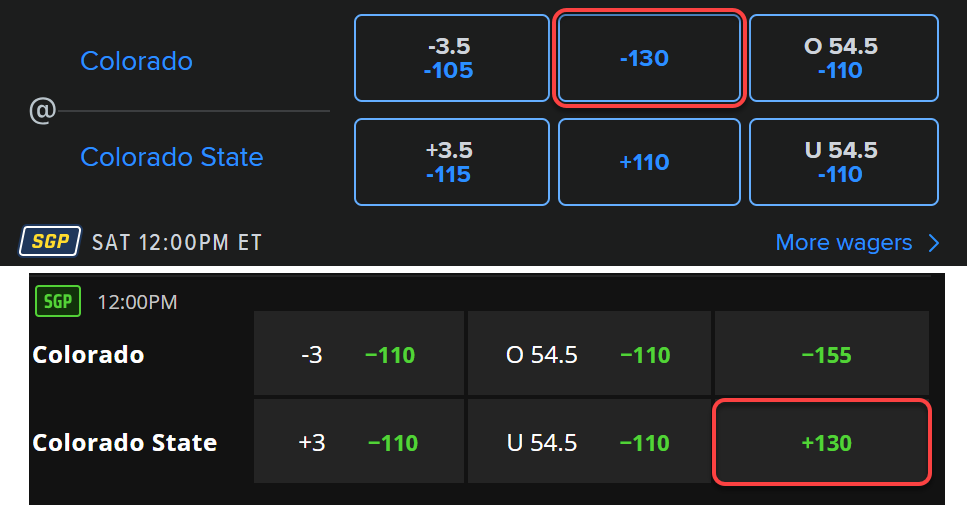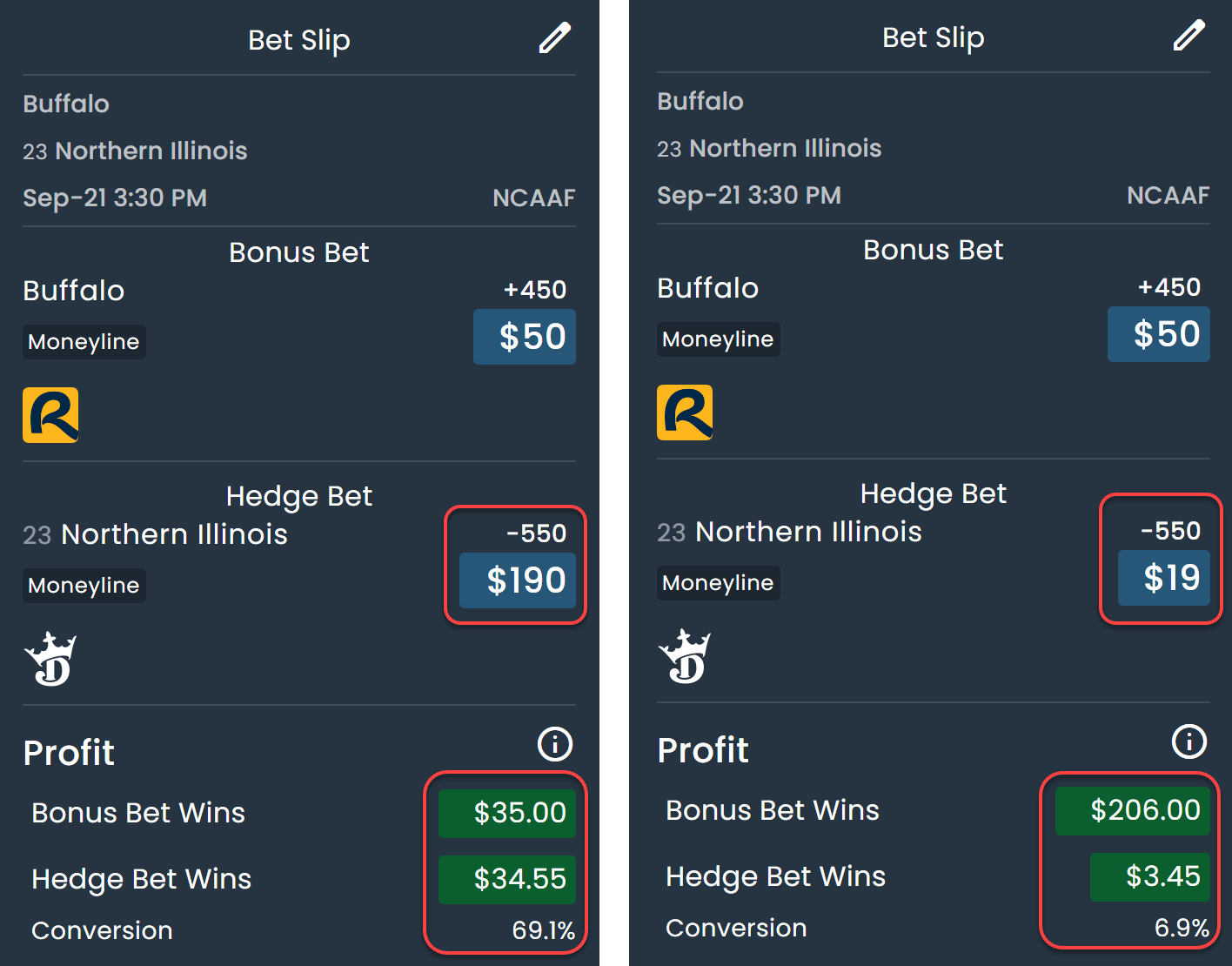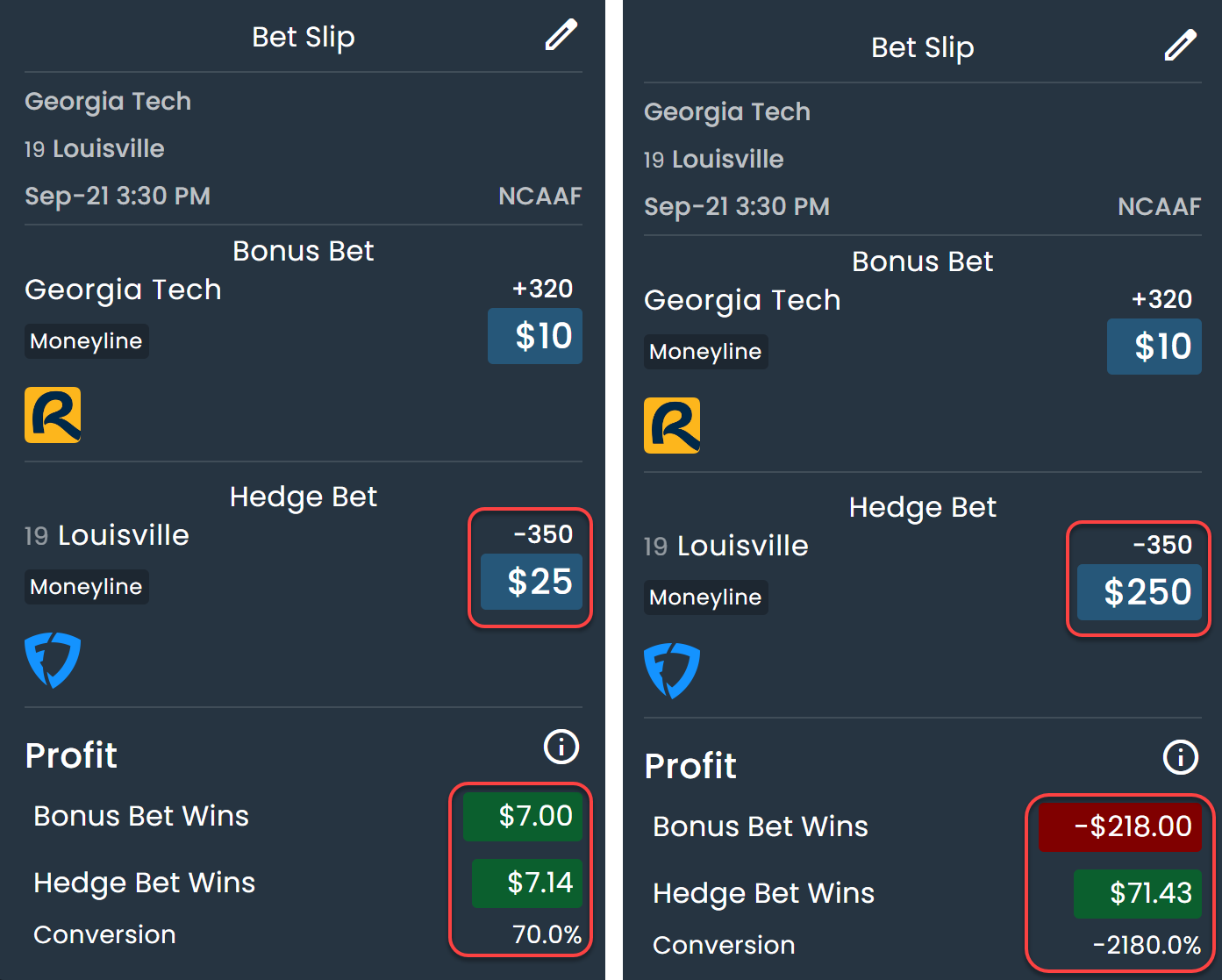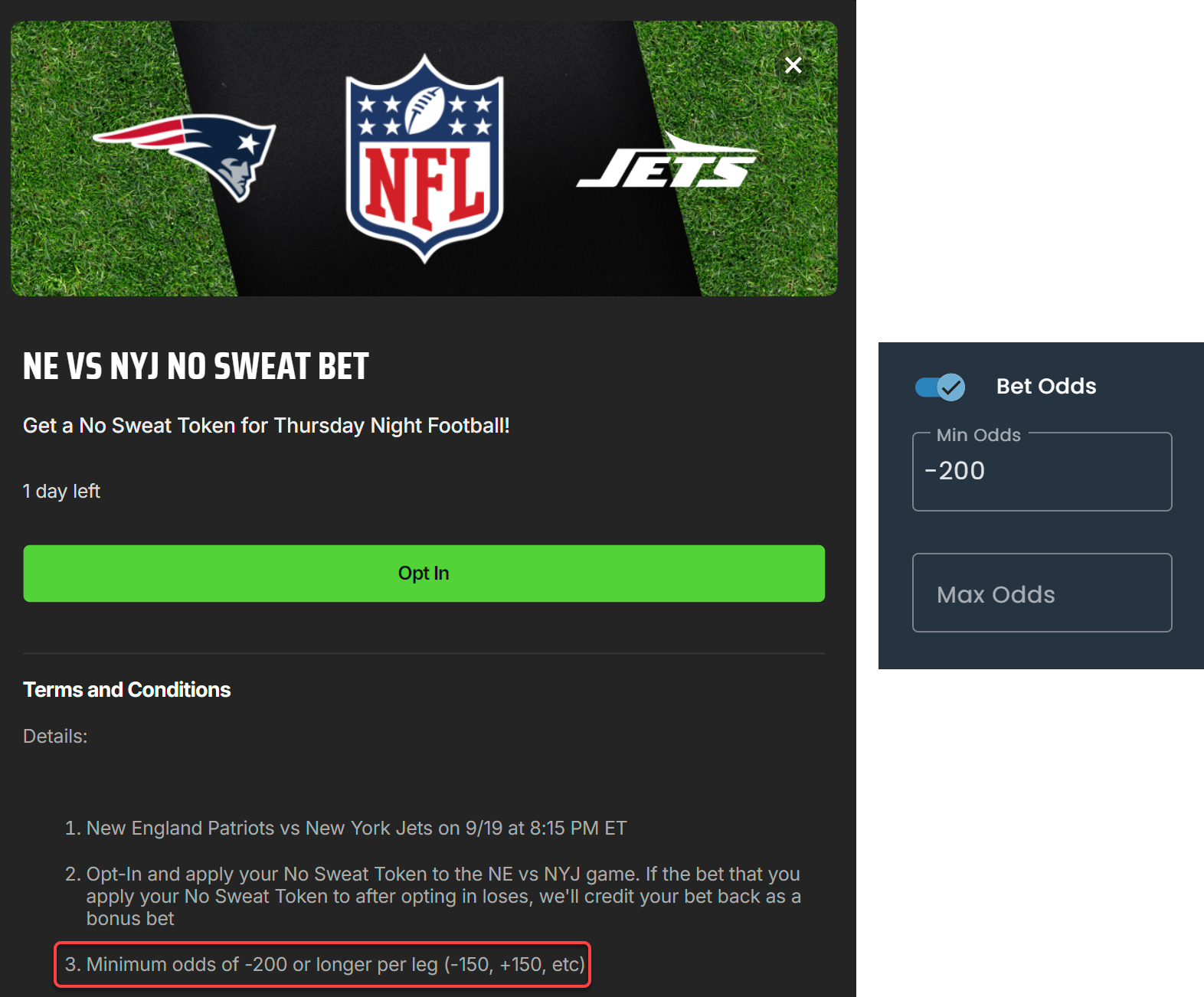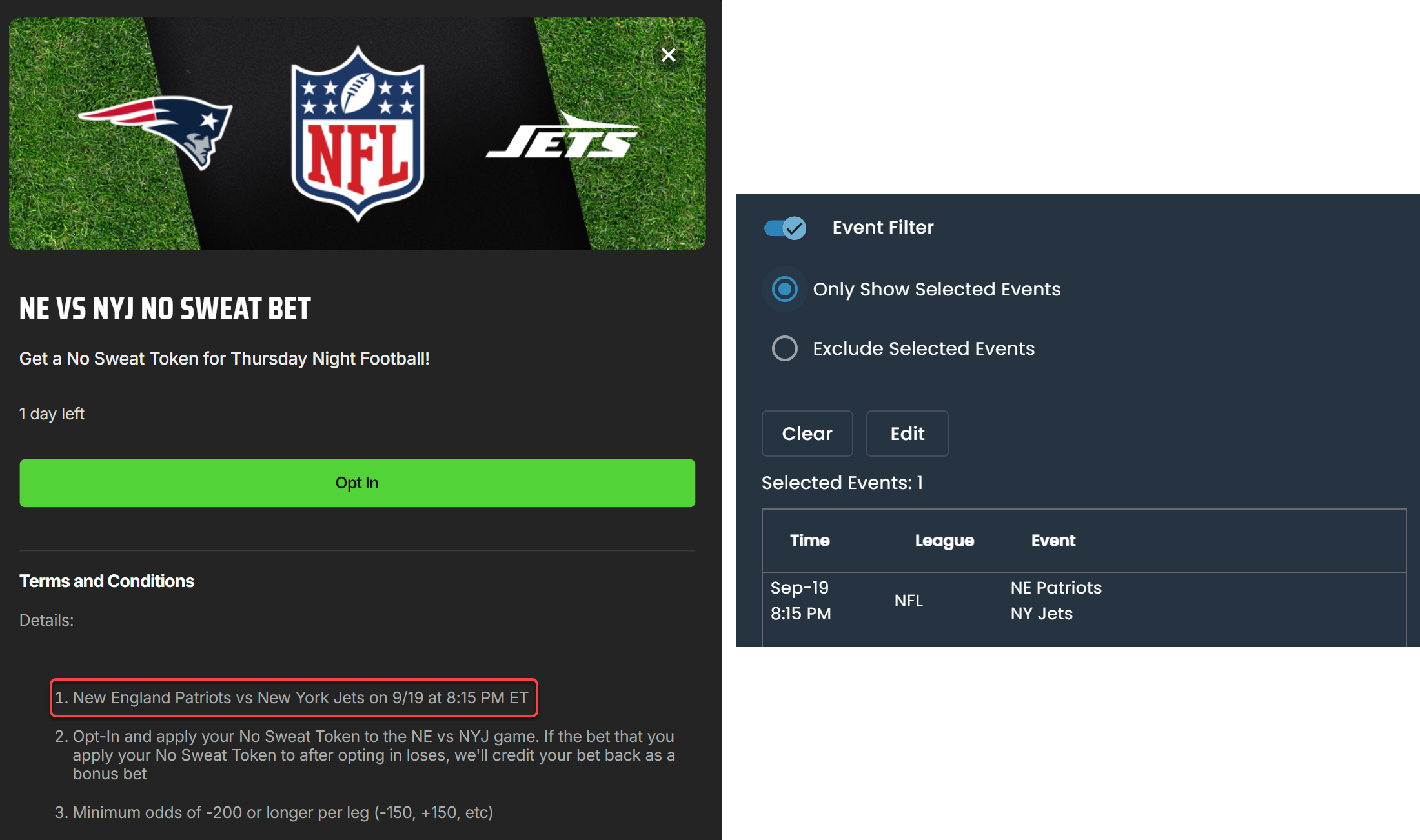Risks With Matched Betting
Matched betting is designed to create risk free profit from sportsbooks' promotions. While this is overwhelmingly true there are a few risks involved with matched betting. These risks are avoidable and the largest one is human error. The risks associated with matched betting are outlined below, along with the best ways to avoid them.
Key Takeaways
- Human error is the largest risk, but taking the time to double check your bets reduces this greatly
- Odds can move at anytime when betting, and this movement can present risk to matched bettors
- The hedge book not taking the full hedge bet may leave you exposed to a loss
Human Error
Human error is one of the most common risks in matched betting, especially when placing a bet under pressure or while managing multiple bets simultaneously. A bettor might accidentally enter the wrong stake or select the wrong market on a sportsbook, resulting in a mismatch between their bets. There are a few key things you can do to greatly reduce the risk of human error.
- Go slow
- Double check the terms and conditions of the promotion, do not assume they are the same as a previous promotion
- Verify the odds on both sportsbooks
- Double check you have the correct game selected on both sportsbooks
- Ensure you have the right market selected on both sportsbooks
Placing The Wrong Bet
Double headers in the MLB can increase the risk of placing the wrong bet. If you place the promotional bet on game one of a double header and mistakenly place the hedge bet on game two. This leaves you at risk of losing both bets. Since matched betting aims to create consistent profits over time, even one mistake can erase the gains from several successful bets. Another potential mistake is betting the on the same team for both the promotional and hedge bet. This is most common in college sports when team names are similar such as Colorado and Colorado State.
Betting The Wrong Amount
Betting the wrong amount can result in losing money. The Bet Finders on DarkHorse Odds do all the math for you, but you are still at risk of typing in the wrong bet amount. Always double check the odds and bet amounts.
Minimum Odds
Some promotions have minimum odds requirements, and any bet placed that does not meet these requirements will not count towards the promotion. An example is if a qualifying bet has a minimum odds requirement of -200, but you mistakenly place a bet that is -225. DarkHorse Odds has a minimum odds filter to avoid this scenario, but you need to double check the terms and conditions to verify the minimum odds requirement.
Misunderstanding The Promotion
One of the risks in matched betting is misunderstanding the terms of a sportsbook’s promotion. Promotional bets often come with conditions that bettors must meet to qualify, such as minimum odds, specific markets, specific games, or certain bet types. Placing a bet that doesn’t meet these criteria can result in the bettor missing out on the promotion, leaving them vulnerable to a loss.
Conflicting House Rules
House rules can vary significantly between sportsbooks, and this poses a risk to matched bettors. For example, some sportsbooks may have different rules around bet cancellations, voiding bets, or settling outcomes. If a bet is voided in one sportsbook but not the the hedge bet is graded as a loss this will leading to an overall negative outcome. Even slight differences in how specific bets are handled, such as injury rules or match postponements, can create situations where matched bets don’t align as expected.
It’s important to carefully study the house rules of both the sportsbook and the exchange or hedge bet platform being used. Even experienced bettors can be caught off-guard when one platform grades a bet differently than expected, resulting in a void or loss that wasn’t anticipated. Keeping track of varying house rules across platforms is crucial to ensure that all bets will be treated similarly, minimizing the risk of both bets being lost. MLB and tennis are the two sports where house rules are most likely to be an issue.
Odds Movement
Matched betting often relies on locking in odds that guarantee a profit when a promotional bet is placed. However, odds can shift rapidly, especially in volatile markets or live betting situations. If the odds move after one side of the bet is placed, it can disrupt the hedge bet, leading to an unbalanced outcome or reduced profitability. Bettors may find themselves locked into a poor value position if the odds move significantly, forcing them to hedge at unfavorable odds.
To minimize the risk of odds shifting, bettors should place the hedge bet as soon as possible after the initial bet on the sportsbook. The best thing you can do to reduce this risk is add the bets to your bet slip on both sportsbooks, and double check the odds, market, and bet amounts. Once you verify this place the promotional bet, then the hedge bet.
Gambling Addiction
Although matched betting is designed to be a low-risk strategy, the constant exposure to betting can increase the risk of developing problem gambling habits. Bettors might start with the intention of only placing promotional bets but gradually begin placing additional bets which could lead to a gambling addiction.
Hedge Bet Limited By Sportsbook
Sometimes, especially with less popular markets or higher-stake bets, a sportsbook may not be willing to accept a large enough hedge bet. The bettor may only be able to partially hedge their original bet, which leaves them exposed to potential losses. This is a common issue when trying to match larger bets on less common sports or markets where fewer people are betting, leading to an imbalance in the matched betting process.
The solution often involves either lowering the stakes or spreading the hedge bet across multiple sportsbooks/exchanges, though this can be time-consuming and reduce profitability. Bettors should always check liquidity on an exchange and use sportsbooks like FanDuel to gage market size before placing large promotional bets to avoid being stuck in a situation where they can’t complete the hedge. In cases of limited liquidity, the bettor might need to accept lower odds on the hedge, which can reduce or even eliminate the potential profit from the promotion.

